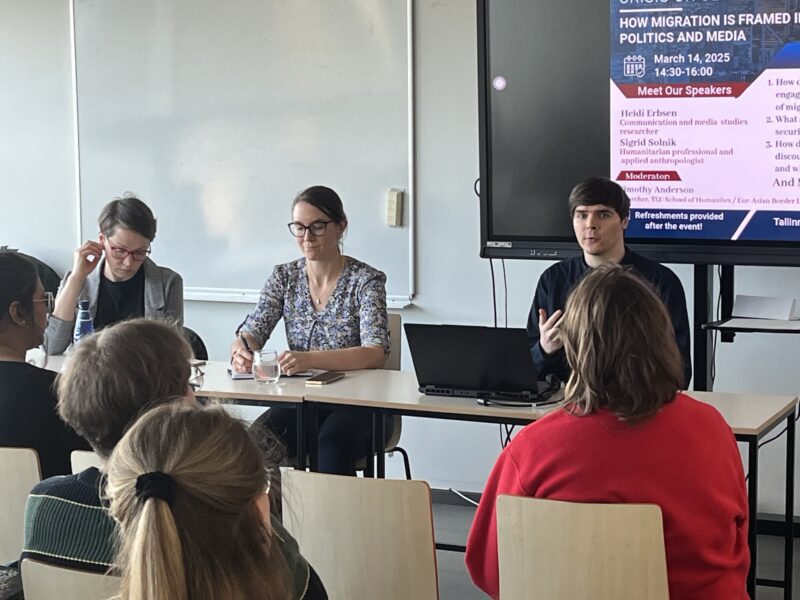
On March 14, 2025, the Eur-Asian Border Lab Forum hosted a seminar at Tallinn University, bringing together scholars and practitioners to dissect how migration is framed in politics and the media. As migration becomes increasingly securitised in political discourse, the discussion challenged the narratives shaping public perception and policy decisions.
Key takeaways from the event:
- Media is central to shaping migration narratives
What gets labelled a migration crisis is not just about numbers, it’s about framing. Heidi Erbsen, media and communication researcher, highlighted how different media outlets construct migration in ways that influence public opinion and government responses. Political agendas and historical contexts determine whether migration is seen as a humanitarian issue, a security risk, or an opportunity.
- Humanitarian and security logics often clash
Humanitarian and applied anthropologist Sigrid Solnik emphasised the tension between state sovereignty and asylum rights. While international law guarantees protection for refugees, its application depends on national politics, sometimes leading to contradictions. Can security-driven policies and humanitarian obligations ever be fully reconciled?
- Securitisation extends beyond borders
Migration policies don’t just regulate movement; they reshape societies. Solnik referenced renowned political scientist Tõnis Saarts’ concept of Estonia as a “defense democracy,” where security logics influence language policies, education, and civil society. When migration is framed as a threat, does it alter the very fabric of democratic institutions?
- What drives migration, and can legal categories capture it?
A thought-provoking audience discussion questioned whether migration categories (forced, voluntary, economic) truly reflect the complexities of why people move. If mobility is an inherent part of being human, how do we define “forced” migration? And do legal frameworks need rethinking to better represent lived experiences?
The Eur-Asian Border Lab Forum continues to provide a platform for critical discussions on borders, migration, and security. A huge thanks to our speakers Heidi Erbsen and Sigrid Solnik, and to moderator, Eur-Asian Border Lab researcher Timothy Anderson, for leading an engaging and thought-provoking conversation.
Stay tuned for upcoming events as we continue to explore world pressing borders and bordering issues and related matters.
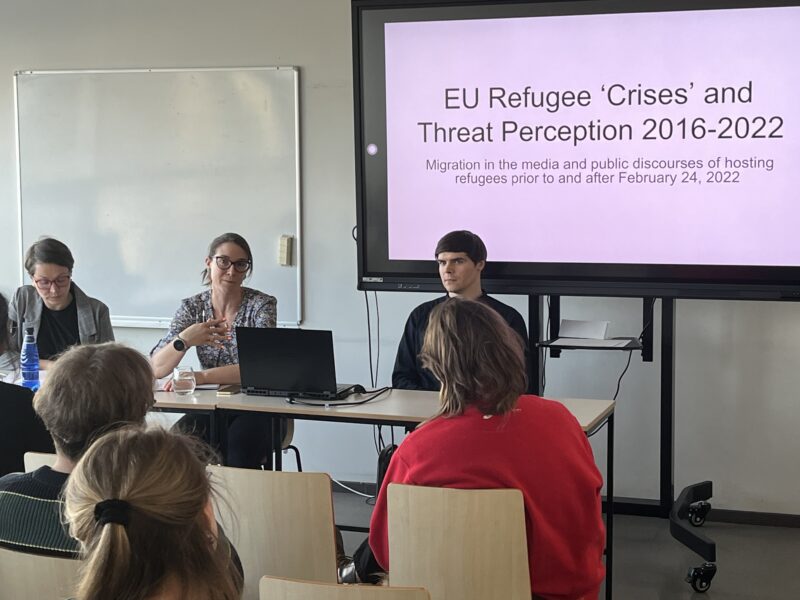 |
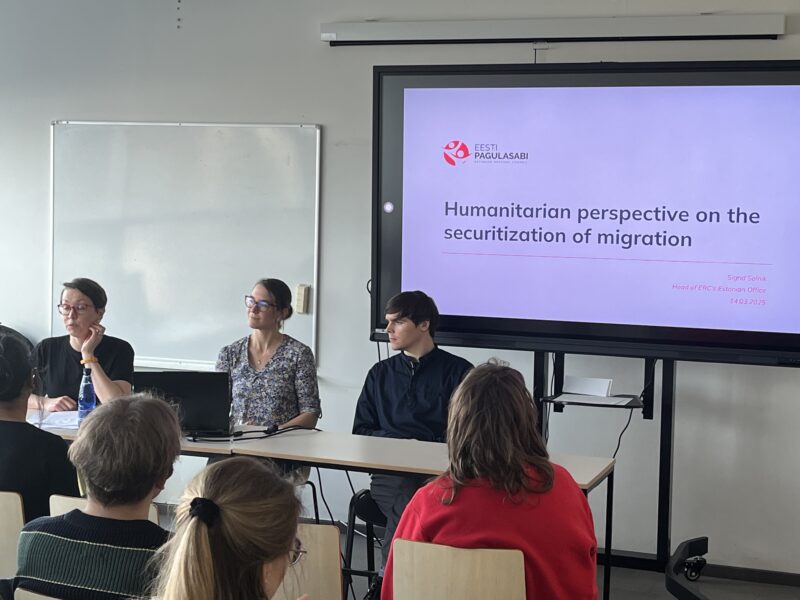 |
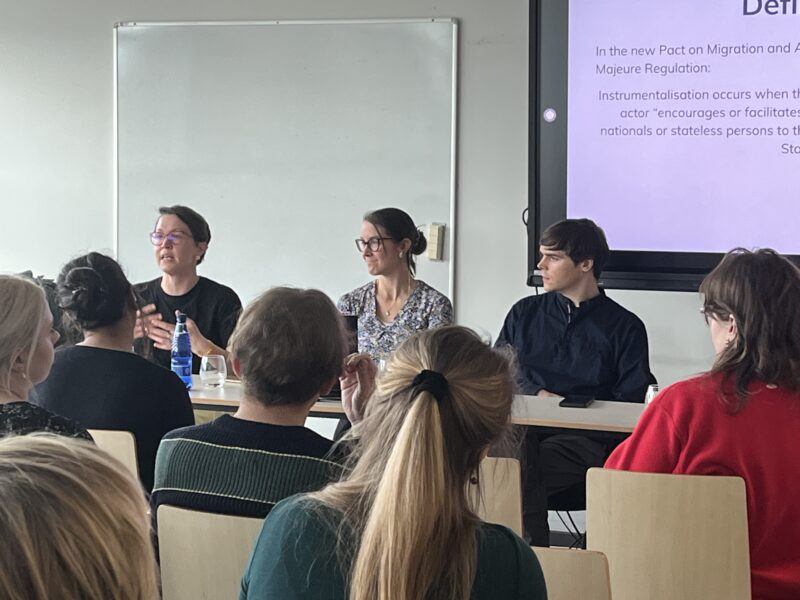 |
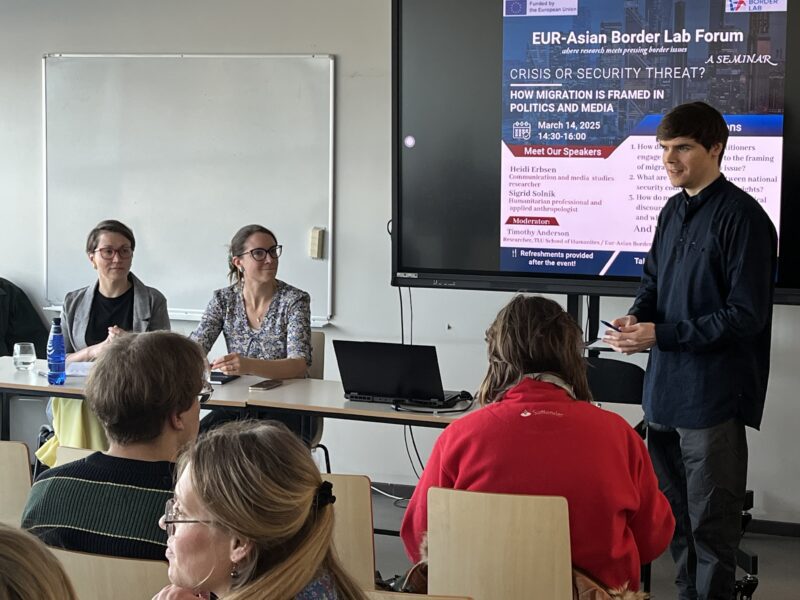 |